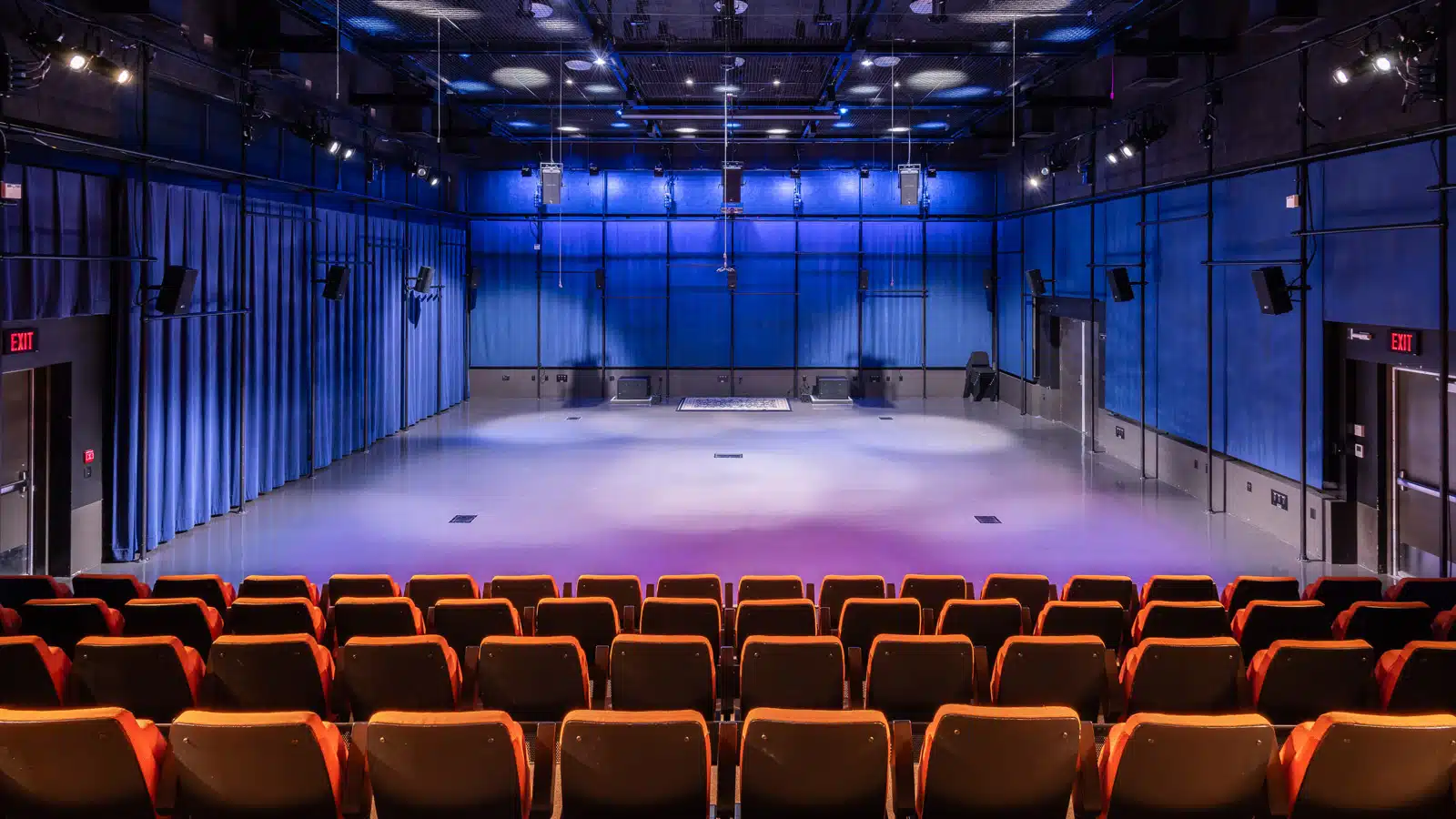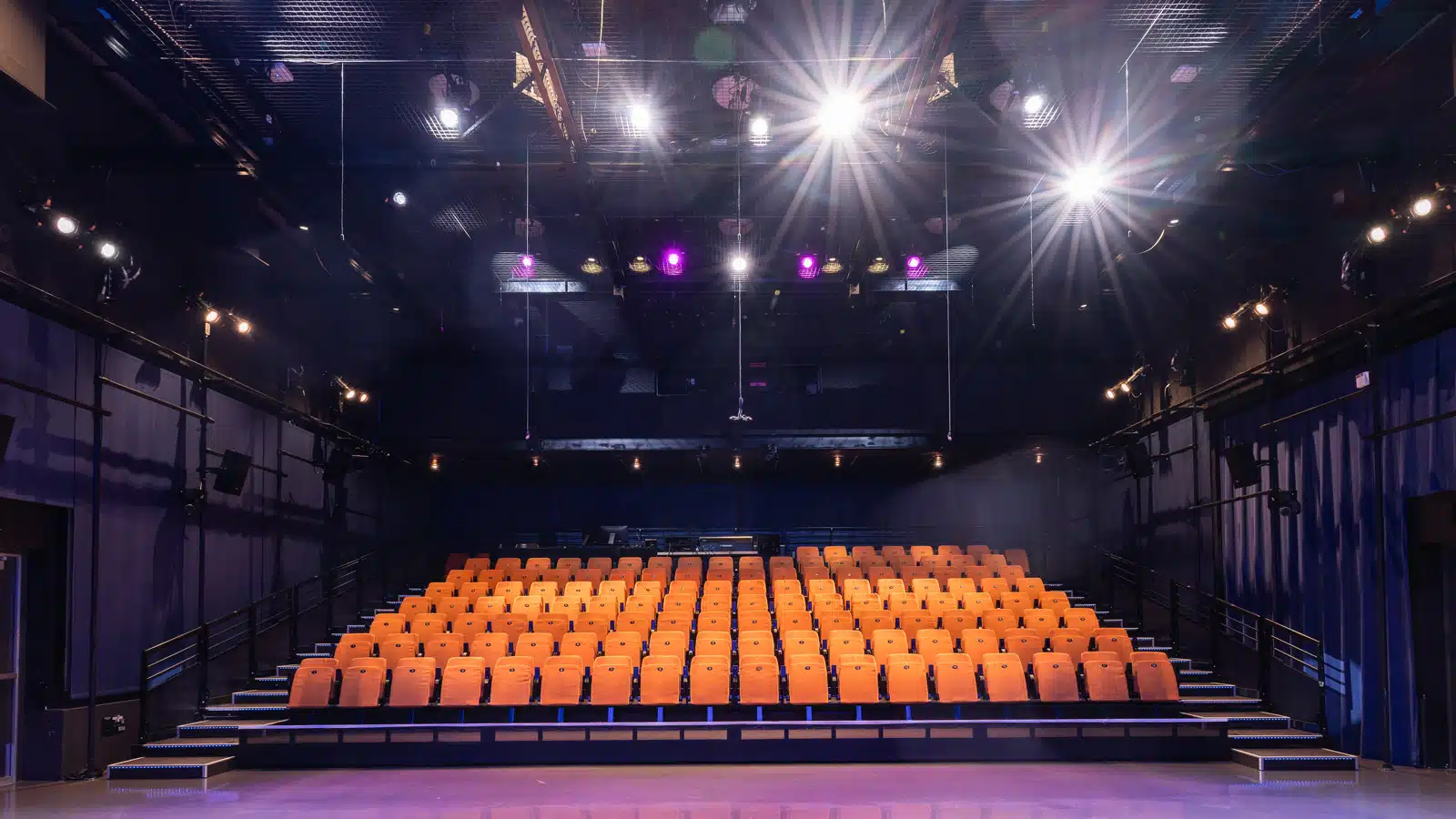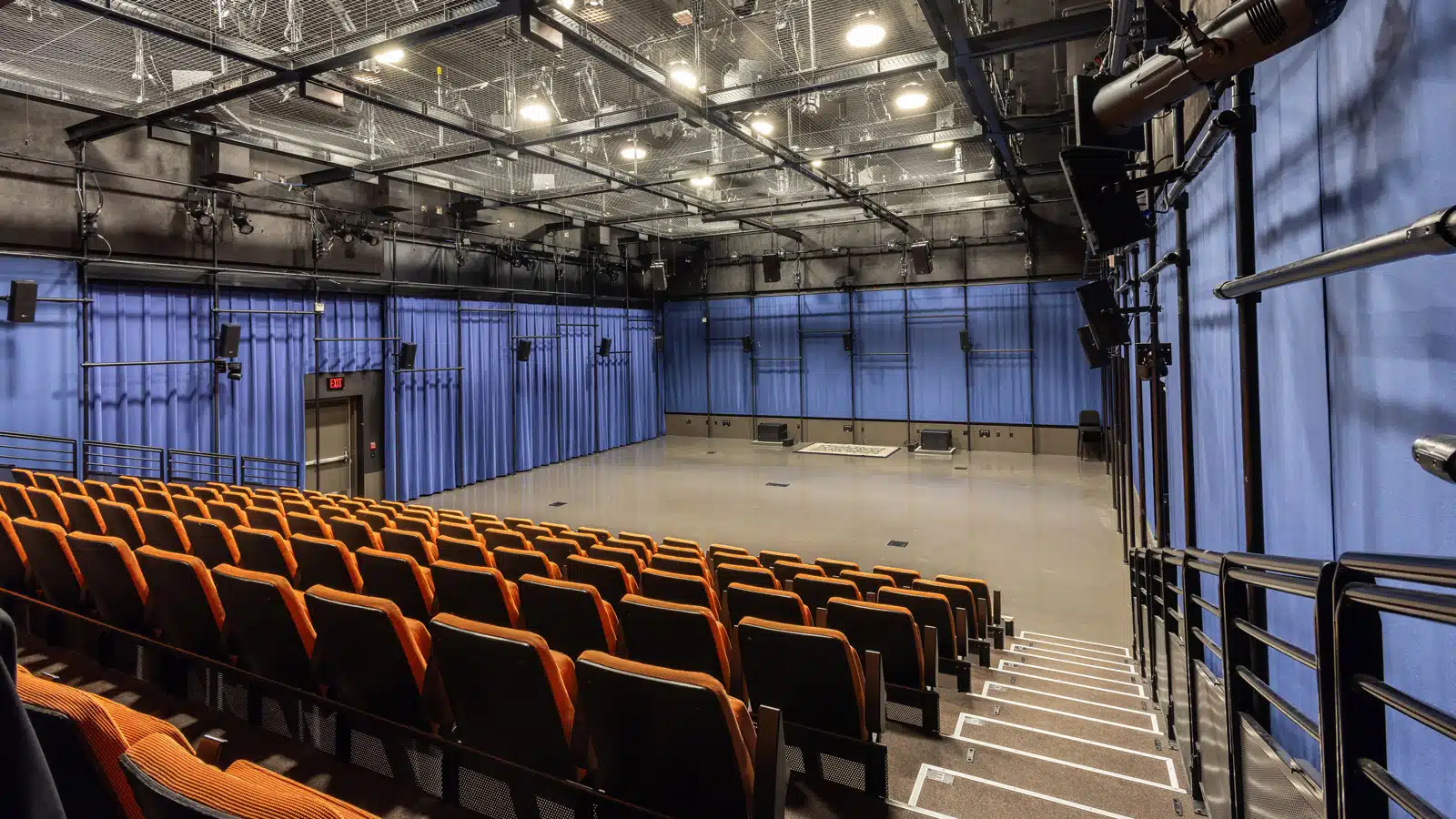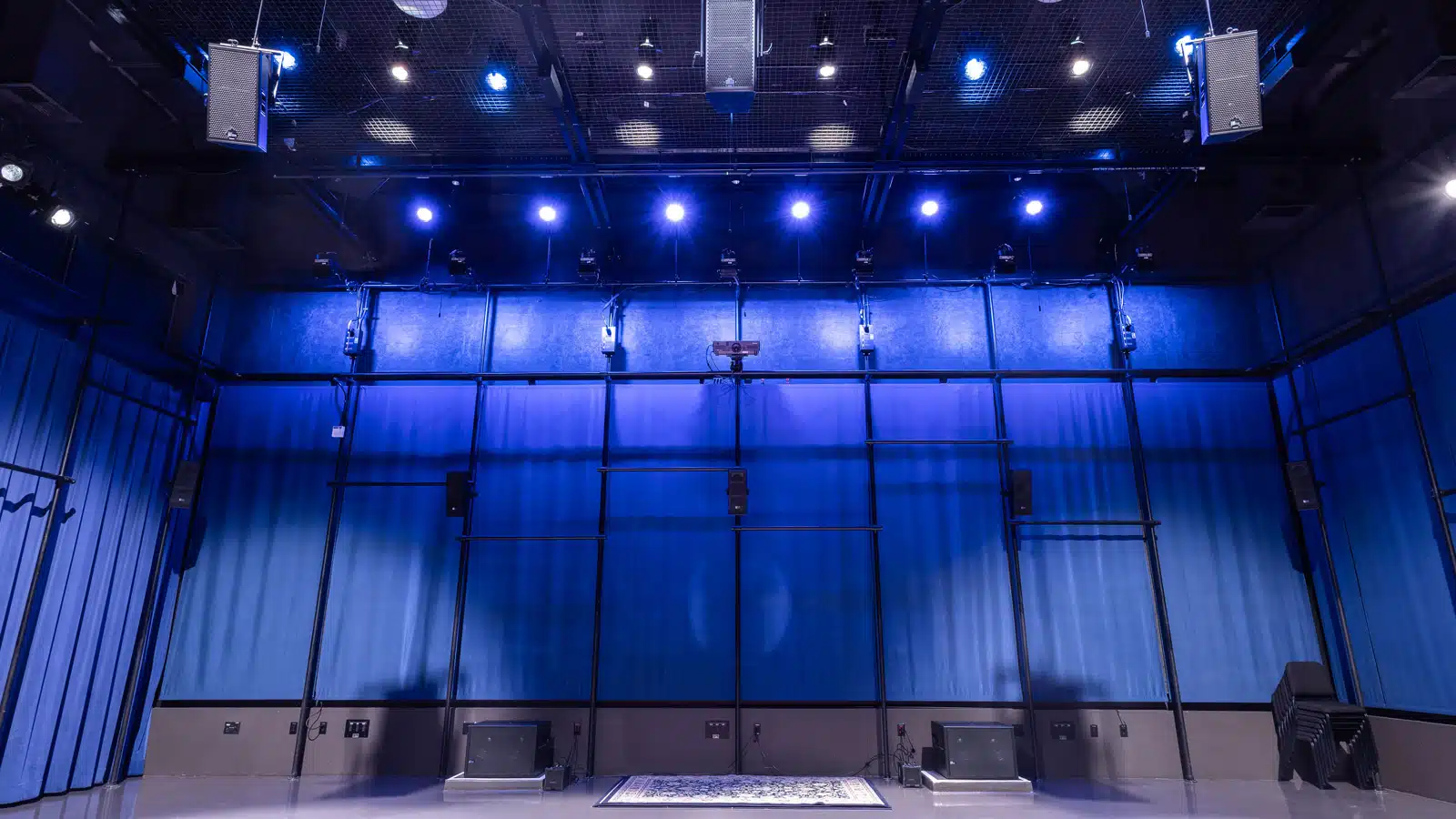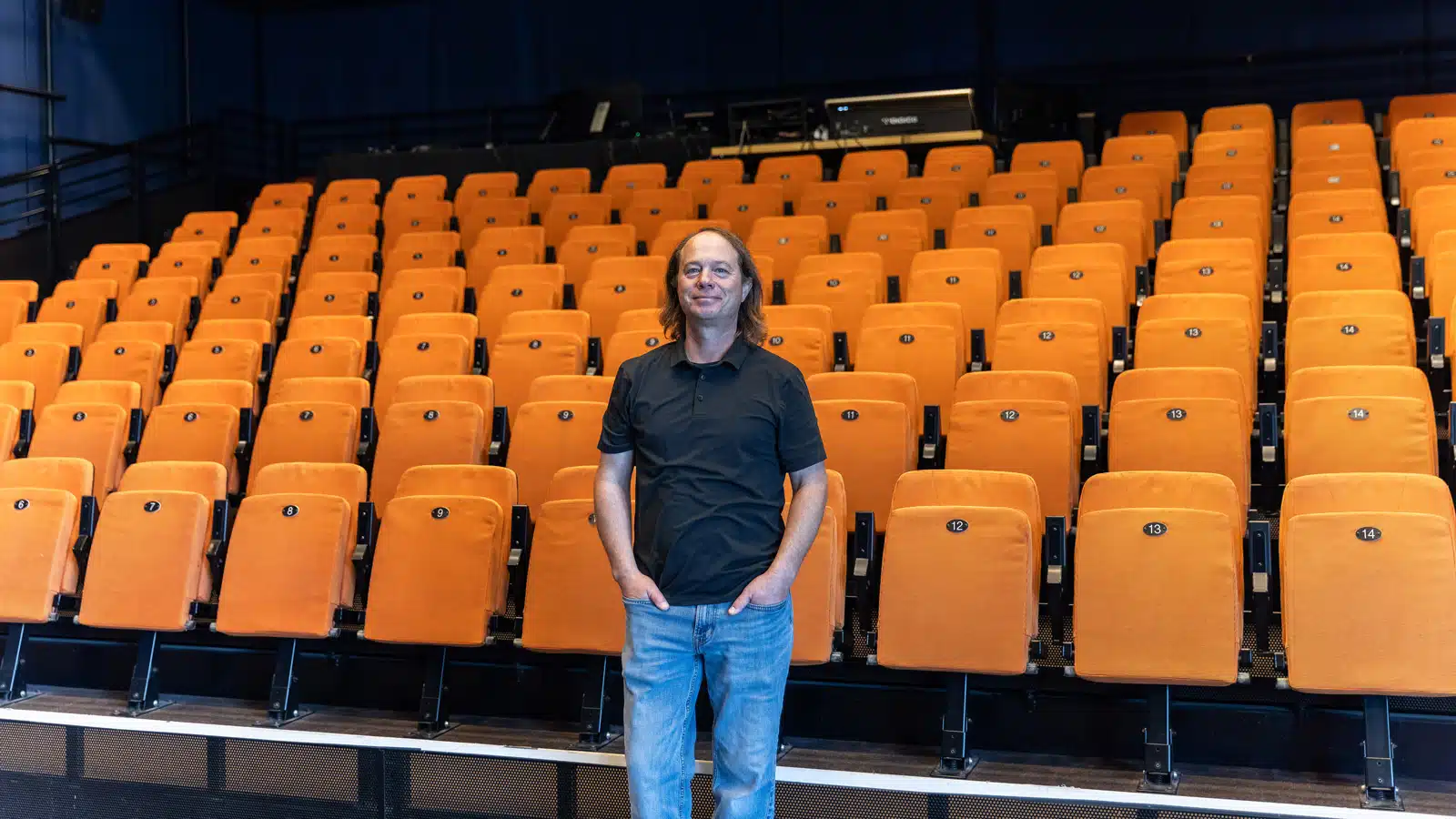UC San Diego's journey with Meyer Sound showcases the transformative power of cutting-edge audio technology in education...this program is poised to provide unprecedented creative opportunities to aspiring musicians and sound artists, setting a new benchmark for educational institutions everywhere.”
Steve EllisonDirector, Spatial Sound, Meyer Sound
Meyer Sound collaborated with staff and researchers at the University of California San Diego’s Department of Music to beta test NADIA, the next generation processor of Meyer Sound’s Constellation acoustic system. Cutting-edge spatial sound and variable-acoustics technology upgrades were installed in the department’s Experimental Theater, which enabled real-time development with faculty and students while offering the opportunity to gain skills, learn in interactive ways, and accelerate experimental music research.
UC San Diego is the first educational institution to integrate Meyer Sound’s NADIA hardware platform in its facilities. The installation highlights Meyer Sound’s commitment to audio education and illustrates the potential to apply the company’s technologies in diverse learning environments.
“With the emergence of spatial headphones, immersive art installations, and concert venues like the Sphere, everyone is excited about the idea of creating content for these experiences, but rarely do students have access to these facilities,” said Jeremy Olson, UC San Diego’s Theatrical Production Specialist.
The 150-seat Experimental Theater, part of UC San Diego’s Conrad Prebys Music Center, doubles as a laboratory and performance space and offers a range of multimedia capabilities including video projection, custom lighting, and live computer interfacing. The facility was equipped with the Constellation acoustic system when it was built in 2009. With Constellation, the acoustic properties of the space are transformed at the push of a button, supporting everything from spoken lectures to chamber music to electronic compositions.
“UC San Diego has been an early adopter of our technologies since the mid-nineties,” says Steve Ellison, Meyer Sound’s Director, Spatial Sound. “For 15 years, the Experimental Theater has used Constellation to transform its acoustic signature for any type of performance or event, so equipping the facility with NADIA was a natural evolution. The upgraded Constellation system, combined with the flexibility of Spacemap Go, has brought a new dimension to an already high-level facility.”
The update integrates Meyer Sound’s new NADIA‑CP digital processor, which brings new levels of performance and MILAN-based networking to Constellation and supports spatial sound using Spacemap Go software. An upgraded Meyer Sound loudspeaker system delivers more powerful sound that supports multichannel spatial sound and a broader range of amplified music. The original system and this update were installed by Sound Image of Escondido, California.
Olson has been closely involved in the beta testing process, assisting students and faculty in learning the system and testing its capabilities. Throughout the process, he noted certain spatializations could be achieved more quickly. “Audio routing that sometimes took me days to set up could be accomplished in just a few minutes,” he explained. “Typical speaker routing took less time than explaining the process.”
The NADIA digital audio processing and distribution platform brings new active acoustics capabilities to Constellation, allowing more discrete zones for even higher resolution at lower costs. NADIA seamlessly integrates with Meyer Sound’s Spacemap Go software, providing separate inputs, processing, and matrixing to enable spatial sound with no performance compromises.
The Experimental Theater upgraded its audio playback capabilities with Meyer Sound’s latest model loudspeakers, including ULTRA‑X20 compact wide-coverage loudspeakers and UP‑4slim ultracompact installation loudspeakers. In the new system, 20 ULTRA-X20 and 20 UP-4slim loudspeakers complement the existing three left-center-right UPJ-1P and eight MM‑4XP loudspeakers, and 10 UMS-1P subwoofers.
Integrating Meyer Sound’s advanced technologies at UC San Diego doesn’t just elevate immersive sonic experiences; it also opens up new avenues for integrating spatial sound into classes and performances, with instructors incorporating the new tools into classes across the music curriculum.
“All of our graduate students can utilize spatial audio for any performance, be it one mic, stereo playback, or a full band with multitrack playback,” Olson says. “In fall 2023, [composer, sound designer, and producer] Shahrokh Yadegari held our first spatial audio class designed with this room in mind. Our hope is to continue the class into the foreseeable future.”
With Spacemap Go, students can actively engage in spatial sound design by mixing their own content using iPads, offering a uniquely interactive learning experience. “UC San Diego’s journey with Meyer Sound showcases the transformative power of cutting-edge audio technology in education,” says Ellison. “And now, with the integration of active acoustics with spatial sound, this program is poised to provide unprecedented creative opportunities to aspiring musicians and sound artists, setting a new benchmark for educational institutions everywhere.”

